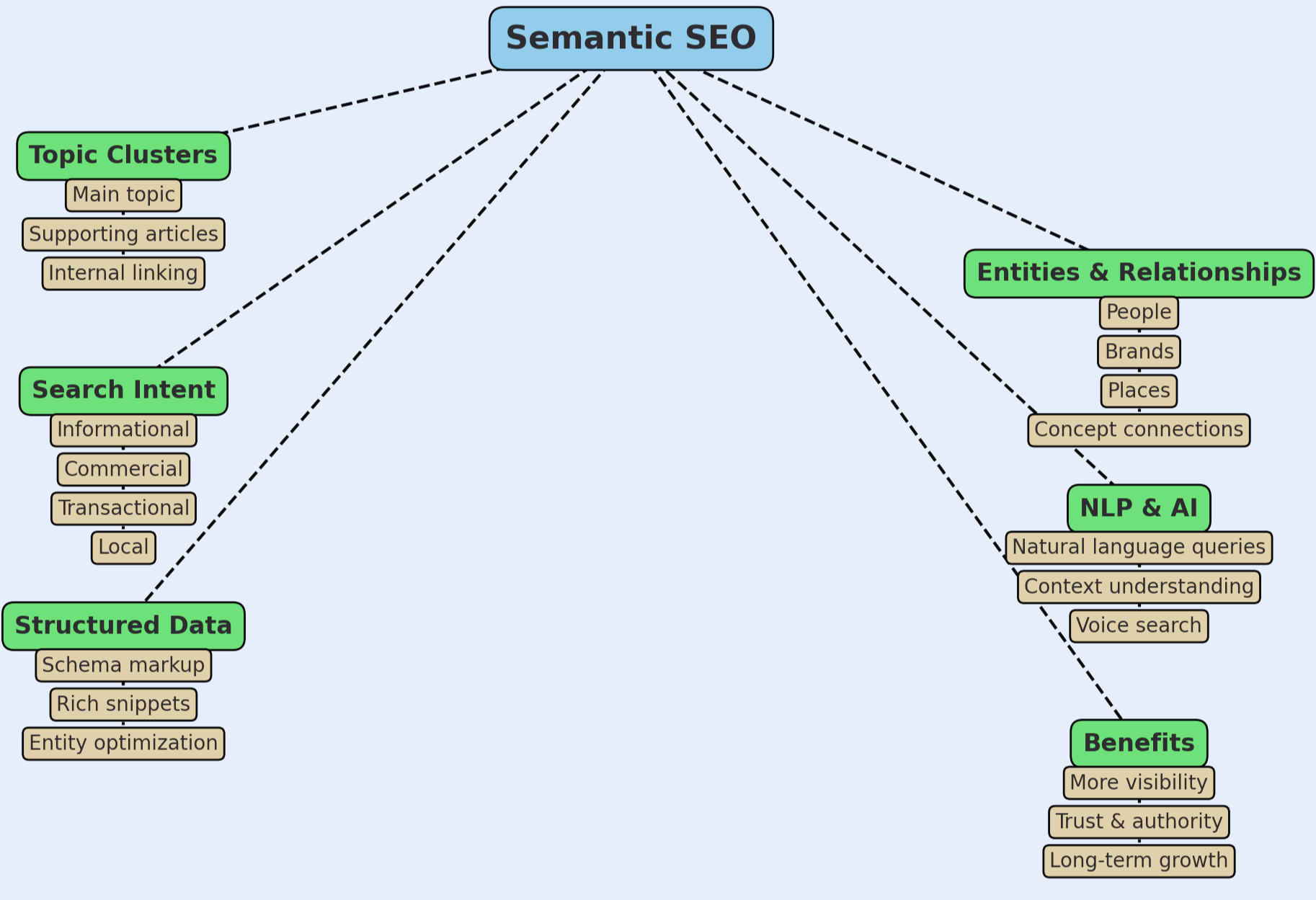If you are looking to grow your website traffic, hiring a Semantic SEO consultant can make a real difference. Search engines today no longer rely on just keywords—they focus on meaning, intent, and context. That’s where semantic SEO comes in.
Instead of only matching exact keywords, semantic SEO helps your website answer fundamental questions, connect related topics, and provide the kind of content people want to read.
What is Semantic SEO?
Semantic SEO is about creating content that search engines and people understand in context. It goes beyond basic keyword usage and focuses on.

Search Intent
Search intent means the reason why someone types a query into Google. They might be:
- Looking for information → “What is semantic SEO?”
- Comparing options → “Best SEO consultant near me”
- Ready to take action → “Hire a semantic SEO consultant”
If your content matches the right intent, people quickly find what they need, and your website has a better chance of ranking. This not only helps your rankings but also keeps visitors on your site longer.
Topic Clusters
Creating groups of content around one main subject. For example, if the main topic is “digital marketing,” you would also write related posts like SEO, Google Ads, and social media. All these pages connect, making it easier for search engines to see your website as an expert on the subject.
Entities and Relationships
Entities are things like people, places, brands, or products. Relationships explain how these things connect. For example, the company “Apple” is associated with products like “iPhone,” “MacBook,” and the legacy of “Steve Jobs.” When your content clearly shows these connections, Google understands it better.
Natural, People-First Writing
Instead of stuffing keywords, write what people ask questions or talk about. Simple, clear sentences make your content valuable and easy to read.
This approach helps your website rank for more related searches, build trust, and stay future-proof as Google’s algorithms keep evolving.
NLP in Semantic SEO
Natural Language Processing (NLP) is the technology Google and other search engines use to understand human language—the way people speak and write. Instead of only matching keywords, NLP looks at the meaning, context, and relationships between words.
How Semantic SEO Works
How Semantic SEO Works: Understanding User Intent and Context to Boost Search Rankings





